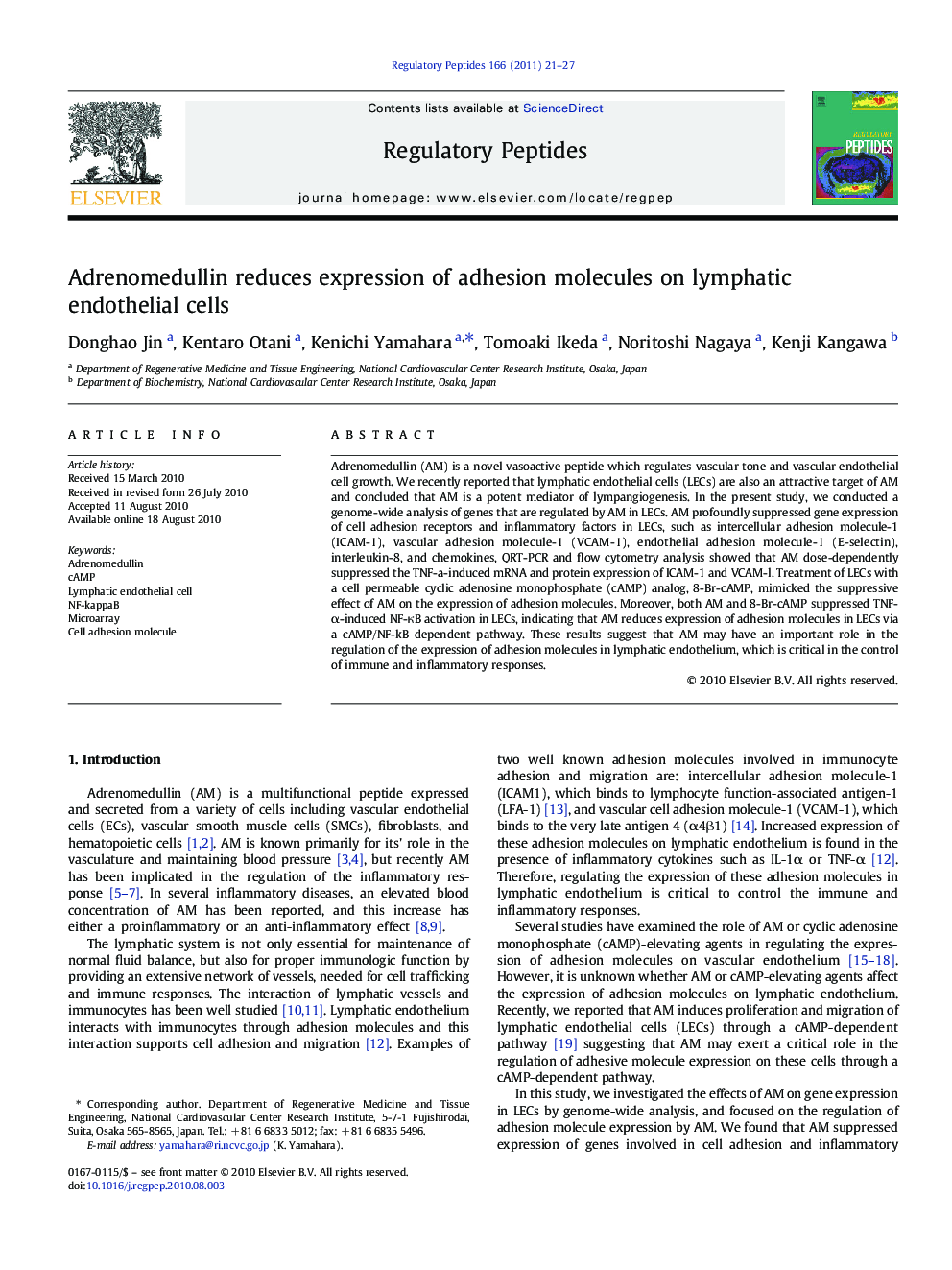| Article ID | Journal | Published Year | Pages | File Type |
|---|---|---|---|---|
| 2022609 | Regulatory Peptides | 2011 | 7 Pages |
Adrenomedullin (AM) is a novel vasoactive peptide which regulates vascular tone and vascular endothelial cell growth. We recently reported that lymphatic endothelial cells (LECs) are also an attractive target of AM and concluded that AM is a potent mediator of lympangiogenesis. In the present study, we conducted a genome-wide analysis of genes that are regulated by AM in LECs. AM profoundly suppressed gene expression of cell adhesion receptors and inflammatory factors in LECs, such as intercellular adhesion molecule-1 (ICAM-1), vascular adhesion molecule-1 (VCAM-1), endothelial adhesion molecule-1 (E-selectin), interleukin-8, and chemokines, QRT-PCR and flow cytometry analysis showed that AM dose-dependently suppressed the TNF-a-induced mRNA and protein expression of ICAM-1 and VCAM-l. Treatment of LECs with a cell permeable cyclic adenosine monophosphate (cAMP) analog, 8-Br-cAMP, mimicked the suppressive effect of AM on the expression of adhesion molecules. Moreover, both AM and 8-Br-cAMP suppressed TNF-α-induced NF-κB activation in LECs, indicating that AM reduces expression of adhesion molecules in LECs via a cAMP/NF-kB dependent pathway. These results suggest that AM may have an important role in the regulation of the expression of adhesion molecules in lymphatic endothelium, which is critical in the control of immune and inflammatory responses.
Research Highlights► Adrenomedullin (AM) suppressed expression of cell adhesion molecules in lymphatic ECs. ► AM and its second messenger cAMP also inhibited NF-kB activation in lymphatic ECs. ► AM would reduce expression of adhesion molecules via a cAMP/NF-kB dependent pathway.
